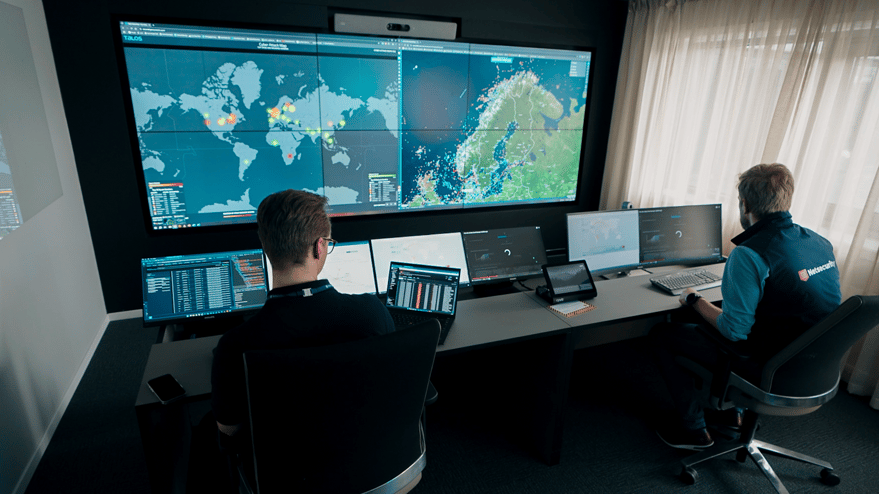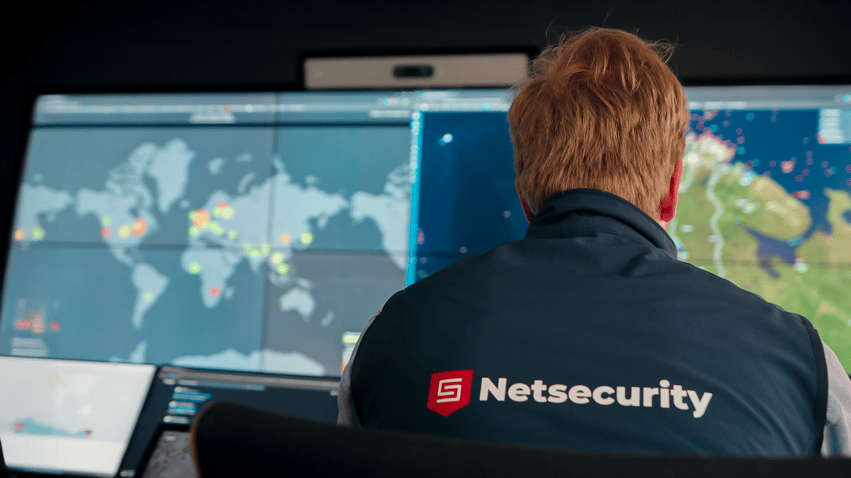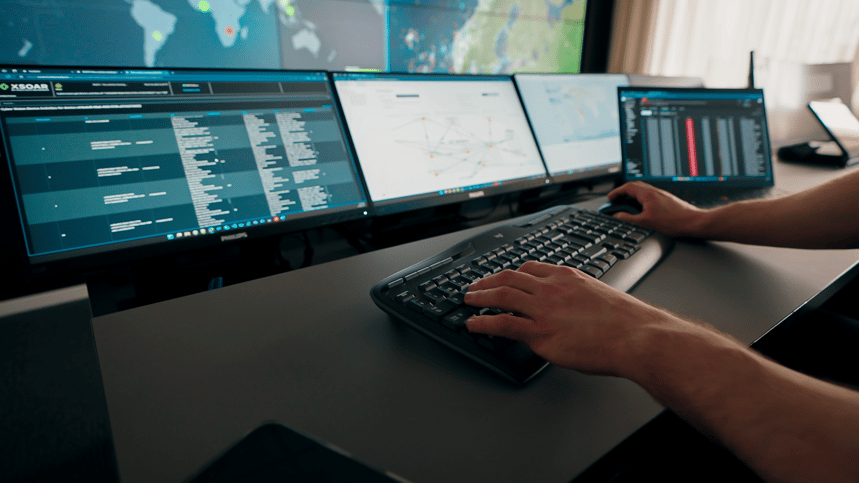When businesses go on vacation, threat actors wake up. Summer is the peak season for digital attacks - and it's management's responsibility to ensure that someone is still on guard.
- When we log off for vacation, we know that many threat actors get to work. That's when staffing levels are lowest and the response is slowest. They know how to take advantage of this," says Henrik Byberg, security monitoring expert at Netsecurity.
Byberg and his colleagues monitor millions of alarms every year from one of the Nordic region's largest security centers. They clearly see how attacks have evolved: faster pace, increased complexity and smarter methods.
- It often takes less than an hour from when a user clicks on something until the attacker has a foothold in the system. And it often happens after working hours - when critical alarms end up in an inbox no one reads until the next morning" says Byberg.

Henrik Byberg from Netsecurity warns that summer is peak season for cyber attacks.
He believes that Norwegian managers need to ensure that someone is on duty when they themselves are on vacation.
Internal capacity is not enough
- Many overestimate their ability to handle attacks. IT departments are drowning in alerts. They struggle to distinguish between noise and real danger. We call it 'alert fatigue'," says Byberg.
He compares poor incident management to putting out a deep-frying fire with water. It only makes things worse. This is where safety monitoring with a competent response makes the difference.
Cybercrime has become an industry
Today, anyone can order a digital attack as a service. So-called "ransomware as a service" platforms offer everything from tools to support and payment.
- You don't need technical knowledge. You buy a ready-made setup and press "start campaign". Then the rest happens automatically," says Byberg.
3 pieces of advice for Norwegian businesses |
||
|
2. Prepare for advanced attacks 3. Ally with a security partner |
||

Fast detection and analysis is crucial to stop attacks before they do any damage.
The threshold to attack is at an all-time low. Those who lack security monitoring are the easiest to target. Even highly mature businesses become vulnerable, especially through subcontractors with weaker security.
Speed and precision make the difference
Two factors make monitoring critical: time and expertise. Netsecurity's security center stops attacks in under six minutes. That's from detection to action.
- We recently had a case where a user was compromised in the evening. The attack was detected, analyzed and stopped within minutes. Without a quick and precise response, it could have led to loss of data and operations," says Byberg.

Digital attacks often occur outside office hours when the response is slowest.
That's why 24/7 monitoring can be crucial to stopping threats in time.
The authorities are concerned about developments
The National Security Authority (NSM) points to increasing risk in its report Risk 2025. Threat actors have gained a head start, and the gap to the defense side is increasing.
- NSM also warns that attacks are becoming more frequent, smarter and via third parties. "They recommend security monitoring, contingency plans and better insight into your own and your suppliers' vulnerabilities," says Byberg.
What is Managed Detection and Response (MDR)?
MDR is a service that: |
||
| - Monitors users, devices and networks 24/7 - Analyzes events and alerts in real time - Responds quickly to actual attacks - Provides ongoing reporting and insights |
||
|
The goal is to reduce risk and consequences. |
||

Modern cybercriminals can order digital attacks as a service.
The threshold for attacking Norwegian businesses has never been lower.
Need access to expertise, not just tools
- Protecting against attacks is not just about IT. It's about the company's ability to protect its assets, data and reputation. It needs to be anchored in the board and management," says Byberg.
"Today, it's not a question of whether you will be attacked. It's about how quickly you detect it, and whether you have the expertise to handle the situation correctly.
- Before you log off for the summer, as a manager you should know who is actually watching when you're not," Byberg concludes.
Published 03.06.2025

